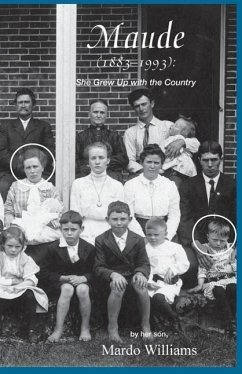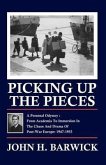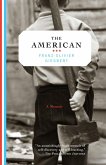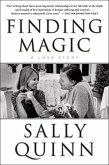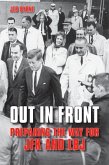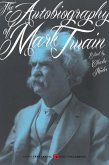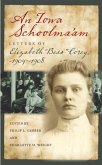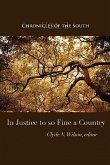This new edition of Maude (1883-1993) has been updated by Mardo Williams' daughters, adding historical details their dad wished to make, twice as many photos, and nine appendices not present in the 1996 hardcover (which won an Ohioana Library Award for its author). During her 110-year lifetime, Maude went from a 400-lb. wood-burning stove to a microwave oven, from an outdoor privy to indoor plumbing. She got the vote in 1920 and voted in the next 18 Presidential elections. With poetry and human dramas (two murders and a suicide), written by a master journalist, the book shows the impact of the changing times on shy, unassuming Maude, her fun-loving husband Lee, and their four active children. They farmed 100 acres on the banks of Rush Creek in Logan County (Ohio). A favorite with book discussion groups, Maude has been adopted by several colleges for use as a supplemental American history text. "Mardo Williams brings out the extraordinary in a seemingly ordinary century's worth of experiences in his fine biography of Maude."-Leonard Lopate, New York & Co., National Public Radio "Maude is not only a fascinating story of an extraordinarily resilient woman but also an invaluable insight into how family life, and making a living, changed so dramatically during the 20th century. The book is of considerable value not only to general readers but also to social historians..."-Dr. Richard Trainor, Vice-Chancellor, University of Greenwich, U.K. "The antics of the children are delightful, as is the wisdom of Maude and her husband, Lee. You'll read how neighbors helped one another during long days of harvest and butchering, you'll learn of games you've heard your grandparents speak of, you'll begin to understand the strength it took just to survive in a world without modern conveniences."--Wendy Green, The Logan Daily News "Maude ...puts a human face on history, showing us how the innumerable changes that occurred during the twentieth century forever altered life for one Ohio family." Michael Mangus, Ph.D., Lecturer, Ohio State University "Mardo Williams brings the harshness and deprivation of Ohio farm life vividly back to life as well as its simple joys. And at the center of it is Maude--dignified, supremely competent as she stood beside her husband and raised their children, and uncomplaining. These days, as politicians pay lip service to family values, Maude is what they're all about"--Ralph Gardner, Jr., New York Observer .."full of delightful stories about rural America-just the kind you wished you'd jotted down after conversations with your grandmother"-Joan Dyer-Zinner, Michigan Community Newspapers "Maude's life story is [one] of the transformation of America from a world of primitive farms to a world of electrified cities. More than a collection of stories, it is a tribute to one woman's love, patience, and courage."-Lindsay Peterson, Tampa Tribune "The book is 336 pages, brimming with photographs and funny little tidbits of history--and America's growing up years... The times were tough, but it was also a golden time..."-V. Daniels, Winter Haven (FL) News Chief "Life was not all Little-House-on-the Prairie perfect. A suicide and two murders grieved the family. Extraordinarily detailed and page-turning ...Maude was the grandmother we all wish we had." Janet Overmyer, Ohioana Quarterly

